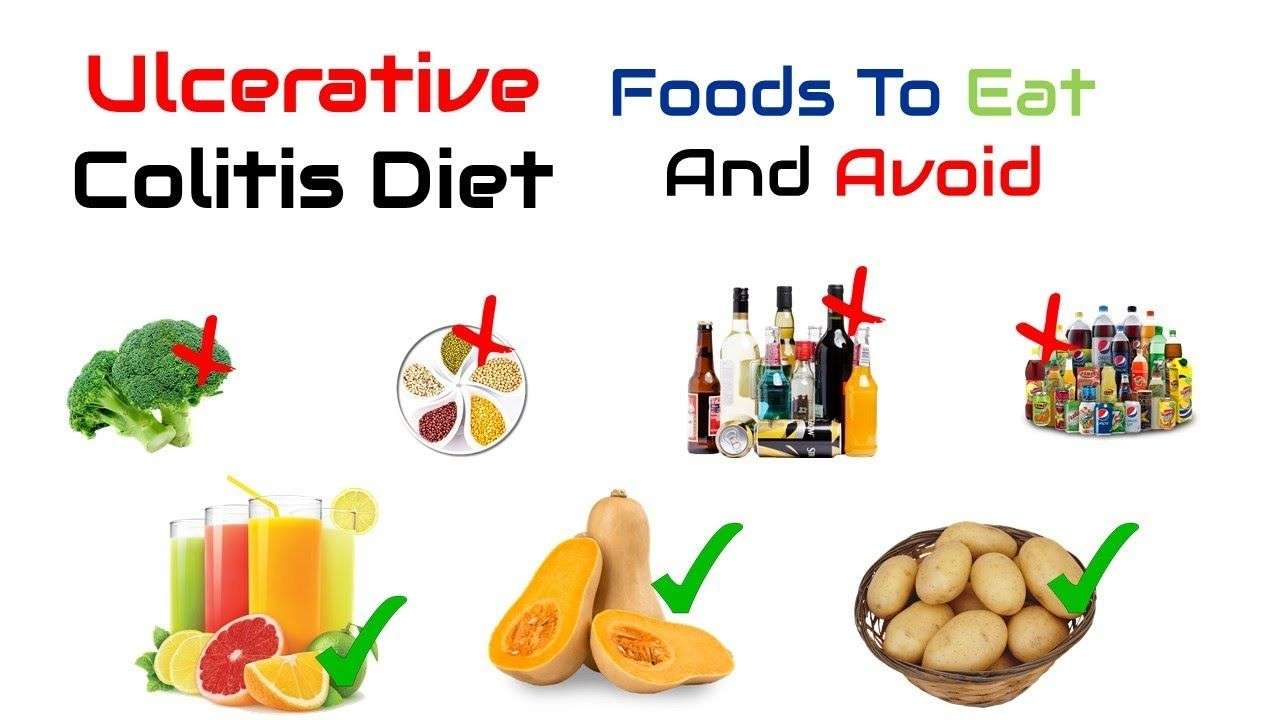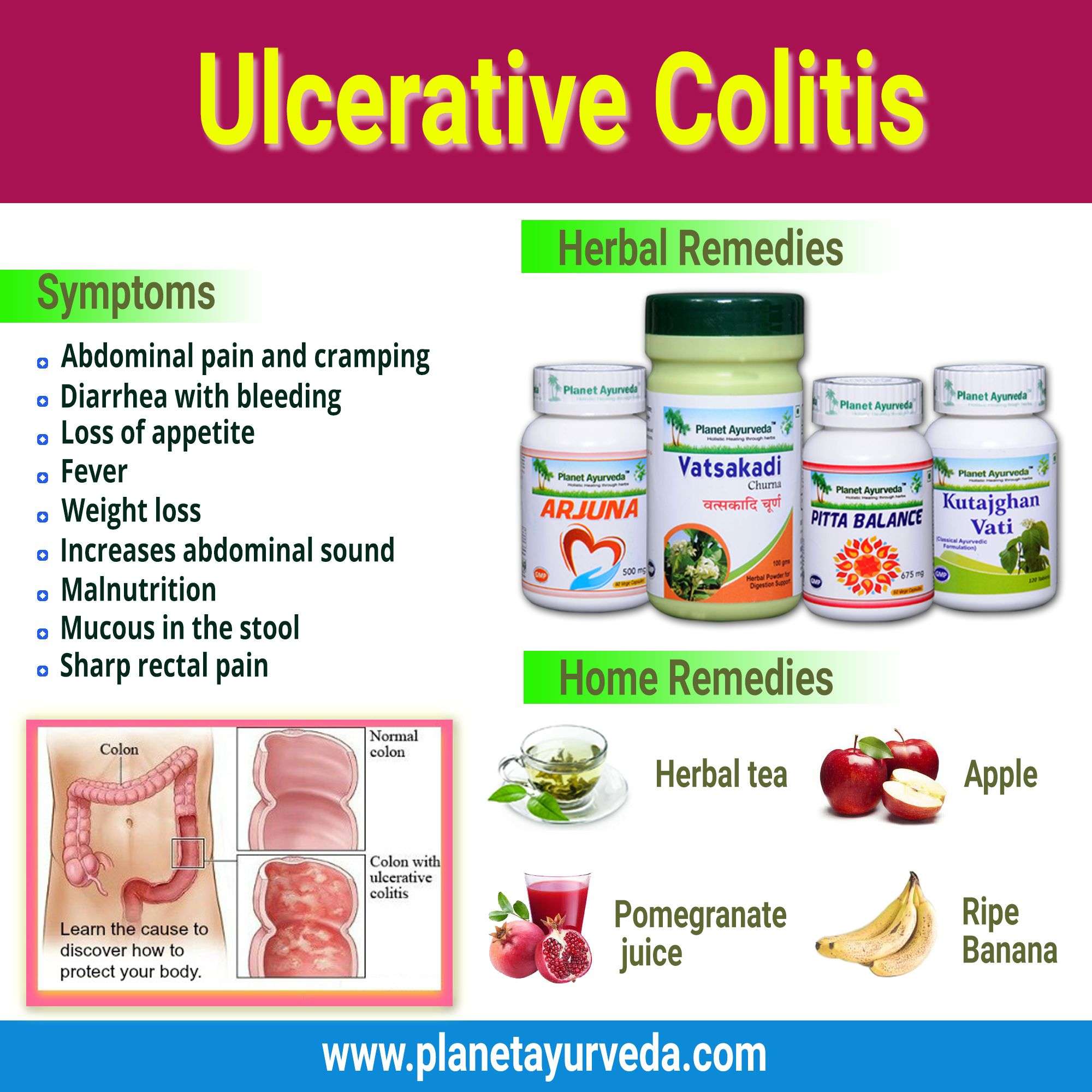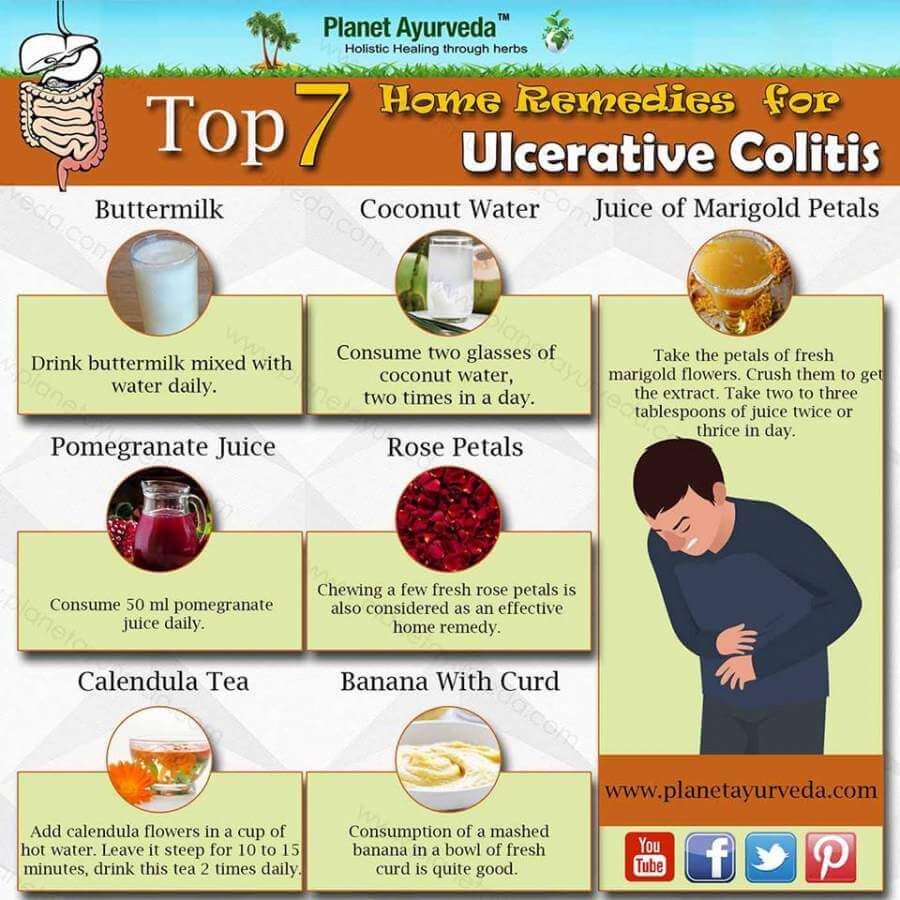Ulcerative Colitis: This Is Why You’re Here Right
- Why did you get Ulcerative Colitis? The short answer is that scientists still don’t know. Genetics are a major risk factor, but some people without a family history develop the condition
- Ulcerative Colitis is caused by an autoimmune response from your body
- Your symptoms may include:
- GI: loose and urgent bowel movements, bloody stool, abdominal pain and cramps, persistent diarrhea
- Non-GI: appetite loss, weight loss, nausea, low energy, anemia
- There are flares and periods of remission throughout disease course UC is different from other types of colitis because tiny ulcers form, causing long term inflammation
Eat In: Ulcerative Colitis Meal
When you have a gastrointestinal issue like UC, you cant rely on restaurants and takeout counters to have foods that suit your needs. Many restaurants use a lot of butter to make their food taste so good.
Thats why you may want to do more cooking at home using fresh foods if possible, not prepared stuff packed with preservatives.
Some people with UC find that eating four to six small meals instead of three large ones keeps their guts happier, which means youve got more dishes to plan than ever.
Pick up some meal-prep habits if you havent yet. Those include planning bigger meals in a slow cooker or making staples like baked chicken, starches, or roasted veggies that you can mix and match for the rest of the week.
While youre shopping for the week ahead, pick up some of the staples youll need during a flare-up, too. That way you can skip going to the store when youre under the weather.
So much research still needs to be done to find the ideal combination of foods that will keep IBD in remission, but you can work with a gastroenterologist or registered dietitian to find what works for you.
That may require a lot of trial and error, so be patient with yourself.
Some of the diets experts recommend are:
Choose Fish With Omega
Scientists have not yet come to a consensus about whether or not eating red meat has any effect on people with UC, but the nutrients in fish could be beneficial. Consuming foods like fatty fish, which are rich in omega-3 fatty acids, may help with UC-related inflammation, says Diekman.
Omega-3 fatty acids are a crucial nutrient your body uses to make cells and hormones that regulate blood clotting. While some studies have shown that omega-3 fatty acids are anti-inflammatory, more research still needs to be done to prove theyre beneficial. According to the National Institutes of Health , omega-3 fatty acids, like probiotics, also support the immune system.
Unlike other fats, the body cant make this good fat on its own from other raw materials. Instead, you must get it from food sources, including fish like salmon, herring, sardines, rainbow trout, and mackerel just refrain from frying fillets, since fatty or greasy foods can exacerbate UC symptoms.
Also remember that its especially important to make sure youre eating enough protein immediately after a flare-up to replace any lost nutrients and reduce the risk of anemia.
Recommended Reading: Can You Drink Coffee With Ulcerative Colitis
Carbohydrate Intake As A Risk Factor For Ibd
A systematic review reported a negative association between dietary fiber and fruit intake and CD risk . Soluble fiber from fruit may have a protective effect on CD . High vegetable intake may be associated with decreased risk of UC . The European Investigation into Cancer and Nutrition study reported that an increased consumption of sugar and soft drinks with low vegetable intake was positively associated with UC risk . Increased consumption of sweets is positively associated with CD and UC . Overall, this suggests that while refined and processed carbohydrates and intake of sweetened beverages are risk factors for IBD, complex carbohydrates including fruit, vegetables and fiber should be included in the diet to manage IBD.
Switching To A Biosimilar: Effies Experience

At the start of 2020 the government announced that coverage was changing for people who take Remicade® for the treatment of Crohns disease or ulcerative colitis. This meant that patients receiving the biologic drug infliximab, marketed as Remicade®, would see this coverage discontinue with new coverage for the biosimilar version: Inflectra and Renflexis.
Ulcerative colitis advocate Effie was one of those people. In this self-produced video, Effie talks all about her experiences with switching to a biosimilar, takes us through her first Inflectra infusion, and answers some of the same questions you may be asking yourself if you will be going through the same process:
- What is a biosimilar?
You May Like: Foods Bad For Ulcerative Colitis
Supplements And Other Lifestyle Changes To Try
Besides diet and medicine, there are a few other therapies that could be helpful for people with ulcerative colitis.
Dr. Singh suggests focusing on adequate sleep and reducing stress to prevent flares. One of the most common causes of flare can be stress, so stress reduction is probably the best medicine I talk about when I see patients, he says.
There is also limited research surrounding the use of certain supplements and probiotics as a therapy for IBD, but more evidence is needed before recommendations are made12,13.
Dietary Recommendations For Ulcerative Colitis
There are different dietary recommendations for each stage of Ulcerative Colitis, active and remission. Recommendations mainly revolve around the amount of dietary fiber in your diet. During a flare its best to minimize the amount of fiber in your diet, whereas during remission fiber can be a beneficial part of your diet. Fiber is a tough nutrient for the gut to digest so during a flare, when the gut is already stressed, fiber can aggravate the symptoms of Ulcerative Colitis. Fiber also adds residue to stool, which should be avoided to allow the bowels to rest and heal. This is specifically true for insoluble fiber, which does not dissolve, and moves through your GI tract unchanged. Consuming fiber during a flare can increase bloating, gas, diarrhea, and abdominal pain, and may even lead to intestinal blockage.
Active
When UC is active, let your bowel rest as much as possible. Therefore, we recommend a low fiber, low residue diet:
- Low fiber fruit: bananas, cooked fruit, canned fruit
- Non-cruciferous vegetables: asparagus, potatoes, cucumbers, carrots
- Refined grain products: white pasta, white rice, white bread
- Lean protein: fish, chicken, lean pork, eggs, tofu
Recommended Reading: How To Cure Gastritis And Ulcers Naturally
Study Design And Participants
In the present cross-sectional study, the diet adequacy and food avoidance habits of UC patients in the UK were investigated. The study was conducted according to the guidelines laid down in the Declaration of Helsinki, and all procedures involving human subjects were approved by the ethics committee of a UK Higher Education Institution. Written informed consent was obtained from all participants.
A total of ninety-seven UC patients were recruited across the UK from the National Association for Colitis and Crohn’s Disease registers by e-mail, posts in UC forums and social media sites. The inclusion criteria were as follows: aged 1865 years and no history of UC-related surgery.
Initially, four participants participated in a pilot study to ensure that the questionnaire and 24 h dietary recalls were readable and not distressing.
It Can Be Challenging To Differentiate Between Crohn’s And Uc
Our summary of the two conditions is below. You can also read a more detailed explanation about the differences between Colitis and Crohn’s Disease here.
|
Our summary of the two conditions is below. You can also read a more detailed explanation about the differences between Colitis and Crohn’s Disease here.
Read Also: Wound Care For Stage 4 Pressure Ulcer
Foods To Eat With Colitis Flare Up
Since ulcerative colitis cause diarrhea, most experts recommend you to limit your fiber intake when you have colitis flare. However, it is good to replace high fiber foods such as nuts, seeds, raw fruits, and vegetables with more easily digestible diet.
Here are some foods to eat with colitis and the reasons how they can help.
1. Cooked Vegetables
For many people with ulcerative colitis, cooked veggies such as carrot and spinach can be a great source for getting important nutrients like Vitamins A and K.During a colitis flare-up, ensure that the carrots are cooked until they are soft and tender. Cooked carrots are not just easy to digest, but also contain antioxidants that may help ease ulcerative colitis symptoms.
2. Yogurt
Live and active culture yogurt can be a good source of protein if you have colitis flare. The probiotics in this form of yogurt have good bacteria that help ease gastrointestinal problems. Also, moderate amounts of dairy products will not lead to diarrhea but if milk causes bloating or stomach discomfort, turn to lactose-free milk.
3. Salmon
Salmon is good for colon which is rich in omega 3 fatty acids, have health benefits beyond the digestive tract and reduce inflammation. By adding salmon to the foods they eat, people with ulcerative colitis get more protein to their diet and ease symptoms of colitis flare-ups.
Try baking or grilling fish, as frying fish lose a lot of its nutritional value.
4. Applesauce
5. Soft bland foods
6. Oatmeal
7. Eggs
It’s Easy To Get The Care You Need
See a Premier Physician Network provider near you.
The foods you eat cannot cause ulcerative colitis , however certain foods can trigger and worsen your symptoms, if you have UC.
Dietary changes and good nutrition practices can help you control the symptoms and make living with UC more bearable comfortable.
Like Crohns disease, ulcerative colitis is an inflammatory bowel disease . Unlike Crohns, which can affect any part of the gastrointestinal tract, ulcerative colitis targets the colon .
UC inflames the innermost lining of your colon. As the diseases name implies, the inflammation causes ulcers.
What causes UC? One culprit may be an abnormal immune system response that mistakenly attacks the lining of the colon, causing inflammation. Genetics may also play a role. The disease affects people in certain population groups more than others such as those living in northern climates and people of Jewish descent.
Your health care provider can help you make up for these nutritional deficits by identifying foods to help control your UC symptoms and provide you a well-balanced, nutritious diet.
Recommended Reading: Yea Sacc For Horses With Ulcers
The Nutritional Impact Of Uc
Changes in diet and nutrition are one part of a multifaceted approach for treating ulcerative colitis and other IBD conditions. Your doctor also will likely prescribe medication. In more severe cases, surgery may be needed, to repair or remove damaged portions of the colon.
Malnutrition, dehydration, and weight loss are major health risks of UC. When the colon becomes inflamed and ulcerated, its less able to absorb fluids and nutrients needed to help sustain your body.
Diarrhea, a symptom of UC, also increases loss of fluids and nutrients, such as sodium, potassium, magnesium, phosphorus, and zinc.
In severe cases, people with UC may need IV fluids to replace these lost nutrients and fluids.
Other UC symptoms, such as abdominal pain and nausea, can further rob you of nutrition as they reduce your appetite, so you consume fewer calories and nutrients.
Role Of Fat In The Diet

Systematic reviews of the efficacy of n-3 PUFA supplementation in maintaining remission in IBD have shown no clear evidence of their efficacy . However, it may be the type of fatty acids consumed in the diet that are important in maintaining remission. Uchiyama et al. implemented a diet therapy in IBD subjects that involved the use of an n-3 PUFA food exchange table ) to achieve a dietary n-3/n-6 ratio of 1 . In this regimen, to achieve an n-3/n-6 ratio of ~1, the n-6 PUFA intake was restricted to 50% of the mean intake, and the n-3 PUFA intake was increased. The subjects were prohibited from consuming the main sources of dietary n-6 PUFA, i.e., vegetable oil seasonings such as margarine, dressings, and mayonnaise food cooked in vegetable oil and snacks. In a subset of subjects, the mean n-3/n-6 ratio significantly increased after intervention. The mean n-3/n-6 ratios in the remission were significantly higher than relapse groups and increase in the n-3/n-6 ratio was seen in the erythrocyte membrane of IBD subjects. This study concluded that n-3/n-6 ratio may influence disease activity in IBD subjects.
Also Check: What Can I Eat When I Have Ulcerative Colitis
How Often Do I Need A Colonoscopy
Especially when you have symptoms or are just starting or changing medications, your doctor may want to periodically look at the inside of the rectum and colon to make sure the treatments are working and the lining is healing. How often this is needed is different for each person.
Ulcerative colitis also increases your chance of developing colon cancer. To look for early cancer signs, your healthcare provider may have you come in for a colonoscopy every one to three years.
Supplements For Ulcerative Colitis
Because ulcerative colitis may interfere with your ability to absorb nutrients, its important that you use supplements to ensure that your body gets the vitamins and minerals that are necessary. Some supplements that may be helpful when combating the symptoms of ulcerative colitis include:
Don’t Miss: Best Probiotic Brand For Ulcerative Colitis
The Best Foods To Eat And Avoid For Inflammatory Bowel Disease
Inflammatory bowel disease is a treatable, yet chronic and lifelong condition. IBD is a broad term that refers to the inflammation of the gastrointestinal tract and includes specific conditions such as ulcerative colitis and Crohns disease.
No plan has been proven to prevent or control IBD. But managing your diet can help manage your disease during flares and periods of remission. Be sure to talk to your physician or a registered dietitian about your nutrition needs and managing IBD.
Here are diet recommendations for managing IBD flares and remissions from UH Outpatient Nutrition Services.
Which Nutrients Are Important In Crohns And Colitis
Vitamins and mineralsYour body needs vitamins and minerals to work and stay healthy. Your Crohns or Colitis may stop you absorbing enough vitamins and minerals from your food. Vitamins and minerals that you may not absorb properly include iron, vitamin B12, vitamin D and calcium.Eating a healthy, balanced diet may help improve the level of vitamins and minerals in your body. If blood tests show you have low levels of vitamins and minerals, your doctor or specialist nurse may recommend you take supplements to restore your vitamin and mineral levels.Speak to your doctor, specialist nurse or dietitian if you think you may have low levels of any of these nutrients.
IronHaving low levels of iron is common in people with Crohns or Colitis. Possible causes include a lack of iron in the diet, blood loss and problems absorbing iron from food. Lack of iron can lead to anaemia, where there are fewer red blood cells to carry oxygen around the body.Common symptoms of anaemia include:
- feeling tired and lacking in energy
- feeling short of breath
- fast or irregular heartbeat
- pale skin.
Its important to speak to a dietitian before cutting down on fibre so you dont miss out on the health benefits. For example, they may suggest that some people cut down on fibre for a short time during a flare-up, before slowly adding it back in to the diet.Fibre-rich foods include:
- wind
- diarrhoea loose and runny stools.
- sipping a cold drink
Also Check: How To Heal Mouth Ulcers
How Is It Diagnosed
Ulcerative colitis is diagnosed by clinical, colonoscopic, and histologic examinations. A colonoscope/sigmoidoscope is inserted into the large bowel and then a sample biopsy confirms the diagnosis. Clinical symptoms and blood tests can help to assess the blood losses and nutritional deficiencies in patients.
Per The Nih In Their Article On Auto
To read the entire article,
Other diseases that are not auto-immune, but are a direct result of excess inflammation:To find out about if the disease you are suffering from is Auto-Immune, Whats the Learning Curve?I wont lie to you at first it does turn everything upside down.BUT once you start implementing The Anti-Inflammatory Food Combining Guide, youll start feeling the beneficial effects within a few days.Within a few days, youll be wondering where did the Acid Reflux go? Where did the stomach pains go?
Your friends will tell you hey, I noticed you no longer have gas
Is it Difficult?No, its like starting an exercise program at a new gym, when youve never exercised a day in your life. Its an adjustment for the first few days, but then when you start to see the results, it only pumps you up to continue your new routine.Benefits?
Donât Miss: Can I Donate Blood If I Have Ulcerative Colitis
Recommended Reading: Easy To Digest Foods For Ulcerative Colitis
Choosing The Right Diet For Ulcerative Colitis
Because each body is different, there isnt a one-size-fits-all diet for UC. Work closely with a registered dietitian to design a diet that works for you, Diekman advises. Its also good to keep track of what you eat in a food journal. This makes it easier to pinpoint which ingredients trigger your symptoms.
Additional reporting by Kaitlin Sullivan
Who Gets Ulcerative Colitis

Anyone at any age, including young children, can get ulcerative colitis. Your chance of getting it is slightly higher if you:
- Have a close relative with inflammatory bowel disease .
- Are between 15 and 30 years old, or older than 60.
- Are Jewish.
- Use frequent nonsteroidal anti-inflammatory drugs like ibuprofen .
You May Like: Best Probiotic For Ulcerative Colitis